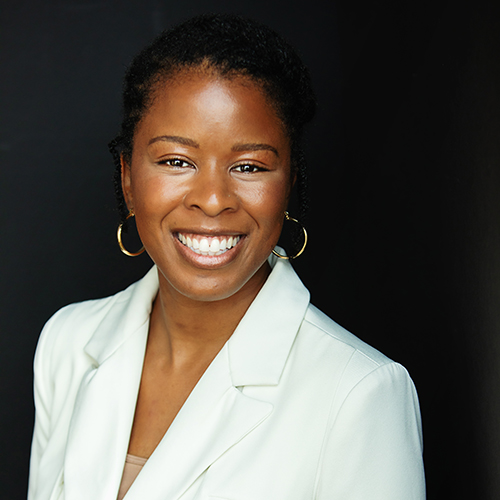 Spelman College's Center of Excellence for Black Women in STEM has appointed Dr. Natasha McClendon as its new director. Her early work volunteering as a judge for Research Day inspired her to pursue the position at the College.
Spelman College's Center of Excellence for Black Women in STEM has appointed Dr. Natasha McClendon as its new director. Her early work volunteering as a judge for Research Day inspired her to pursue the position at the College.
"Since 2017, I have been a judge for Spelman's Research Day after being invited by a friend to volunteer. Each year, I have seen how invested Spelman, the staff, the faculty, and their students are in intellectual inquiry and the development of that curiosity. As an alumna of a women’s college (American University), I know how important places like Spelman are to the development, confidence, and success of their students. Schools like Spelman prepare their students to pursue the dreams they have carved out for themselves as well as pivot when those dreams change. I think all these qualities make it an amazing place to work. The fact that it is a historical HBCU is the icing on the cake!" said Dr. McClendon.
She has also served as a senior research associate for UNCF’s Frederick D. Patterson Research Institute (FDPRI). She managed the Historically Black Colleges and Universities (HBCU) Effect research portfolio. This initiative aimed to provide insights into the impact of HBCUs on Black students, alumni, and their communities.
"My experiences studying STEM are similar to what can be found in the literature regarding weed-out or gatekeeping courses that do not support the retention and matriculation of Black women in STEM. As an undergraduate student in a science-heavy psychology program, my ability to succeed in courses was often questioned or doubted by faculty and staff," said Dr. McClendon. "As I started to study the disproportionate impact of these types of judgments of Black women at predominately white women’s colleges, I learned that my experiences were common amongst Black women at PWI’s and that is one of the reasons why HBCUs are so integral to the success of Black women in STEM."
Her research has focused on Black college student experiences related to STEM retention and support, state and federal performance-based funding, and student success, employing Black Intellectual Traditions and Black Aesthetics as analytical lenses.
"The entire COE Steering Committee is excited about the appointment of Dr. McClendon to the position of COE director due to her extensive experience and expertise as a researcher and advocate for women of color in STEM and HBCUs," said Tasha R. Inniss, Ph.D., the vice provost for the Office of Research, Innovation and Collaboration. "Under her leadership, we will be able to further elevate the Spelman COE Research Data Hub on Black Women in STEM by incorporating data storytelling. This would be supported by the COE technical project manager, Ms. Hope Ogunsile, who was hired in October 2024 to lead the evolution of the COE Research Data Hub."
Dr. McClendon has consulted on educational policy issues across the P-20 spectrum at district, state, and federal levels. Her original research also explores the aesthetic impact of policy on post-secondary student success. Throughout her career, she has worked to expand the narrative of data storytelling by employing innovative methodological, theoretical, and analytical approaches, including creative presentations of findings through multimodal formats and artistic interactive learning workshops.
She aims to empower communities to use data to tell more holistic and representative stories about their identities and aspirations. As the new director of the Center of Excellence for Black Women in STEM, Dr. McClendon continues to advocate for advancing and recognizing Black women in the field and research addressing the systemic inequities that persist in STEM and education.
"I see the Center growing into a nationally recognized and respected source of research and innovation as well as a space for remembering and reclaiming the legacy of Black women in STEM. There are many stories of Black women who have contributed to STEM fields that are overlooked, hidden, or erased from the public eye. I see the Center as a space to showcase the archive of those achievements and the transformative work that faculty, staff, and students are currently contributing," said Dr. McClendon. "In addition to the work at Spelman, I also foresee opportunities to connect and collaborate with researchers who focus on Black women in STEM at other institutions to ensure that Black women’s contributions, experiences, and needs are recognized and addressed to ensure their continued success."